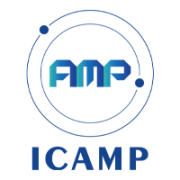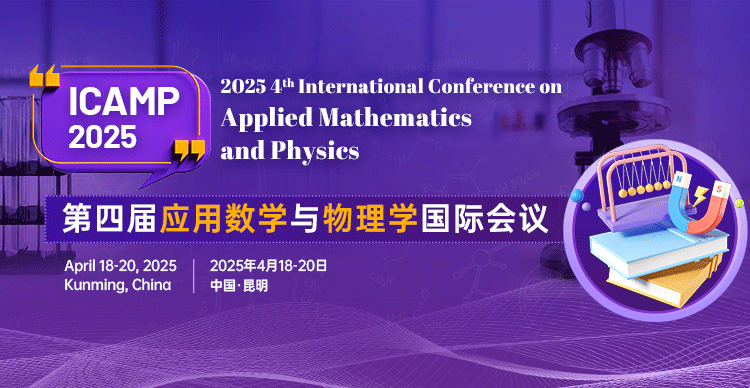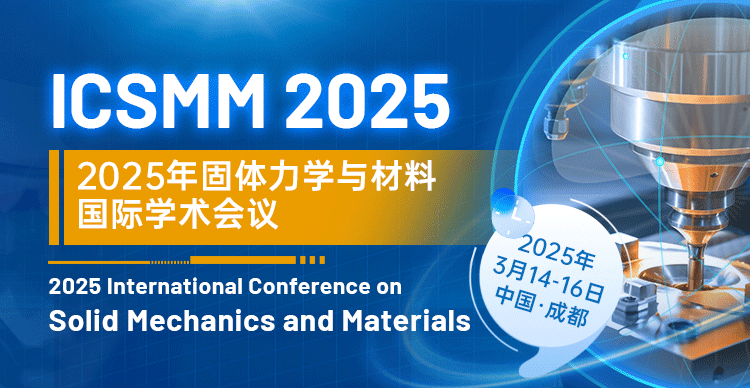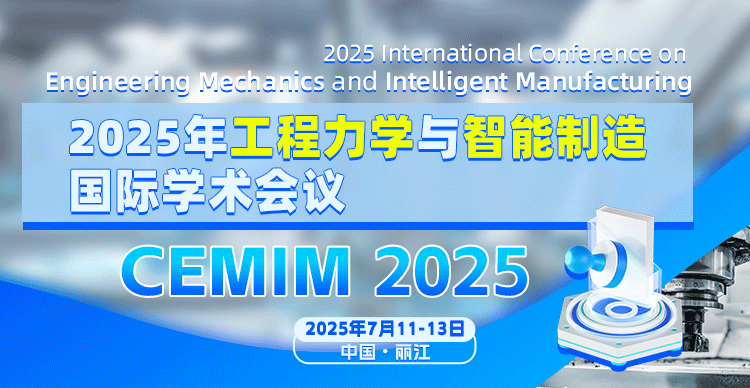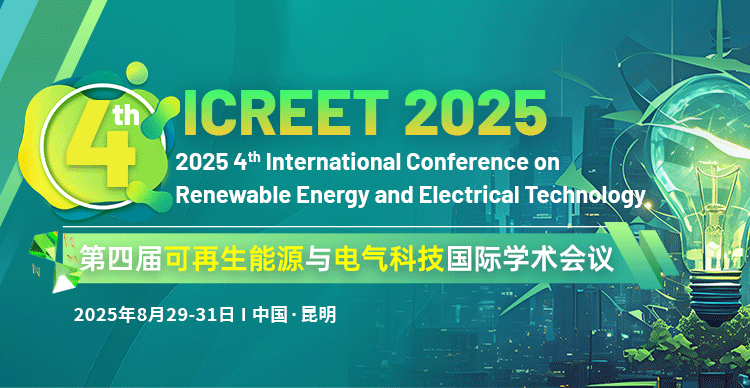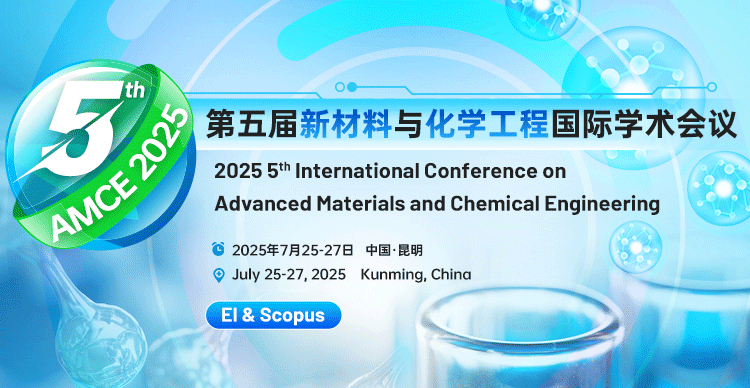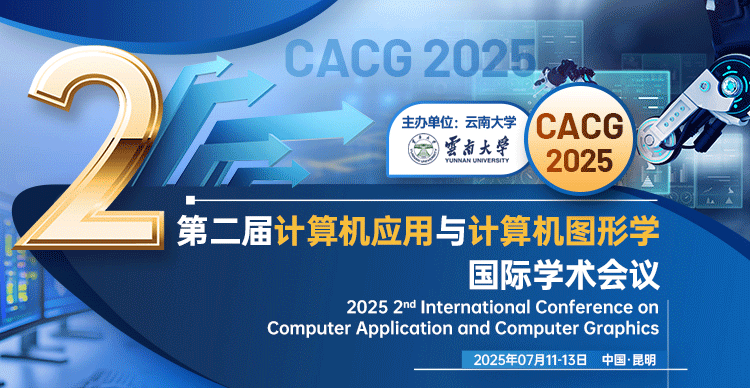第四届应用数学与物理学国际会议
2025 4th International Conference on Applied Mathematics and Physics
大会简介
第四届应用数学与物理学国际会议(ICAMP 2025)将于2025年4月18-20日在昆明召开。大会将围绕应用数学与物理学领域的前沿问题展开讨论,大会诚邀国内外高校、科研机构的专家和学者与会讨论交流。促进相关领域的学术、产业发展,为新一轮的科技和产业变革积蓄力量。
往届主讲嘉宾
朱全新教授,湖南师范大学
朱全新,博士,二级教授,湖南师范大学潇湘学者特聘教授, 博士生导师, 享有国 务院政府特殊津贴专家、湖南省科技创新领军人才、湖南省芙蓉学者特聘教授、德国洪堡基金高级研究学者,计算与随机数学教育部重点实验室副主任,复杂系统的控制与优化湖南省高校重点实验室主任,IEEE高级会员、中国自动化学会高级会员。主要从事马氏过程、随机非线性系统的稳定与控制理论及应用研究工作, 取得了系列重要进展, 在控制领域国际顶级杂志Automatica、IEEE Transactions on Automatic Control等刊物发表SCI收录论文200余篇。获湖南省自然科学奖一等奖(第一完成人)、江苏省高校自然科学奖一等奖(第一完成人)、2018~2023连续六年全球高被引学者、2020-2023连续四年全球前2%顶尖科学家榜单、2014~2023连续十年爱思唯尔中国高被引学者榜单等。主持国家自然科学基金项目5项,省部级项目10 项,作为第二参与人承担国家自然科学基金重点项目1项。担任中国工程概率统计学会常务理事、中国概率统计学会理事、中国工业与应用数学学会系统与控制数学专业委员会委员、中国自动化学会自适应动态规划与强化学习专业委员会委员、中国TCCT随机系统与控制学组委员、国际权威杂志IEEE Transactions on Automation Science and Engineering等6个国际SCI刊物的副主编或编委。
李炳祥教授,南京邮电大学
李炳祥,国家高层次青年人才海外项目获得者、国家人社部高层次人才项目获得者、国家重点研发计划专项课题负责人、南京邮电大学“华礼领军人才”和“软物质跨学科团队带头人”。 毕业于液晶显示发源地、美国肯特液晶研究所,师从著名软物质专家Oleg D. Lavrentovich教授,获得化学物理专业博士学位; 长期从事软物质的物性、效应和操控等基础研究和应用开发,近年在Nature Communications, Science Advances, Advanced Materials, Light: Science & Applications等国内外知名学术期刊上发表论文40余篇; 常任Physical Review Letters, Light: Science & Applications, Physical Review Applied 等国际知名期刊的审稿人,系学术期刊《液晶与显示》青年编委,多次受邀在国内外学术会议上做口头报告; 系中国物理学会终身会员、中国光学学会高级会员、美国物理学会会员、美国光学学会会员、英国物理学会会员、国际光学工程学会会员、江苏物理学会终身会员、江苏省材料学会会员等。
Ghulam Rasool副教授
北京工业大学
Ghulam Rasool教授获得了浙江大学应用数学博士学位。目前隶属于北京工业大学机械工程系,教授各种流体力学和工程数学课程和进行这方面的研究。研究领域包括流体动力学、机械工程、磁流体力学、纳米流体、理论物理、微分方程和数学真实世界问题的建模。此外,他还担任几家著名杂志的学术编辑。
雷君君,副教授
广东工业大学
雷君君,中南大学学士,英国南安普顿大学博士、Doctoral Prize Research Fellow,广东工业大学副教授。目前主要从事声微流控理论、超声微纳米颗粒操控等领域的研究,在LoC等国际学术期刊上发表了SCI论文20余篇,单篇最高被引130余次(H-index=15)。主持国家自然科学基金、广东省自然科学基金、广州市自然科学基金、英国EPSRC Doctoral Prize Fellowship等多项基金项目。担任Micromachines期刊的Guest Editor,Frontiers in Materials期刊的Reviewer Editor。任中国医学装备协会超声分会超声换能器与材料专业委员会委员。
征稿主题
01.数学:
线性代数、矩阵理论、向量分析、复变分析、常微分方程、数值分析、概率论、数理统计、运筹学、博弈论、控制理论、组合数学、数据分析、统计学、几何学、参数计算、数学建模、非线性分析、代数拓扑、突变理论、泛函分析、微分几何、集理论、数理逻辑、代数数论、解析数论、函数论、离散数学、对称性和可积系统、复变函数、实变函数、特殊函数和正交多项式、计算机数学的应用、人工智能的数学理论、应用数学等;
02.物理学与物理研究、应用:
凝聚态物理与新材料、物理实验与原理、物理学与应用物理学、核物理、声/电/光/热学、原子物理学、固体物理学、结构和物性、电工电子技术、半导体物理、光电子学、光电技术及其应用、核电子学、核技术及应用、振动、噪声及其控制、电声技术、电路原理及分析、量子电子信息学、光量子信息学、空间科学与技术等;
03.力学:
应用力学、分析力学、计算力学、气体力学、固体力学、流体力学、爆炸力学、振动学、地质力学、地球动力学、转子动力学、土壤力学、塑性断裂和损伤力学等、受力分析、力学与机械生产等;
04.应用领域:
天文学与地球科学、精准农业、航空航天、汽车工业、化工与石油工程、军事和国防、建筑工程与项目管理、电信系统和网络、能源及电力系统、电子设计与制造、工业过程、医疗保健、物流、交通和运输、机器人、自动化与机电一体化、液压及气动系统、材料、体育、无线系统、城市与区域规划与工程、GIS / GPS系统等;
*本会议征集包括但不限于以上主题的原创论文,有关数学、物理的文章均可投稿
论文出版
所有的投稿都必须经过组委会专家审稿,经过严格的审稿之后,最终所有录用的论文将以会议论文集形式出版,见刊后由出版社提交至 EI Compendex, Scopus 检索。
- Welcome To ICAMP 2025 -
2025 4th International Conference on Applied Mathematics and Physics (ICAMP 2025) will take place in Kunming China from April 18-20 2025. This conference aims to facilitate discussions on “applied mathematics and physics“ among experts and scholars from domestic and international universities as well as scientific research institutions. Through speeches and exhibitions from diverse perspectives the conference endeavors to promote industrial development in related fields and harness collective efforts to seize the new wave of technological and industrial change.
Full Paper Submission Date
January 17 2025
Registration Deadline
April 11 2024
Final Paper Submission Date
April 14 2024
Conference Dates
April 18-20 2025
Call For Papers
The topics of interest for submission include but are not limited to:
■ Mathematics and Application of Mathematics
· Application of Riemannian Geometry in Optoelectronic Systems Design
· Combinatorial Mathematics in Photonics
· Finite Groups in Optical Engineering
· Global Differential Geometry in Lens Design
· Algebraic Topology in Optical Networks
· Cryptography in Optical Communications
· Differential Dynamical Systems in Laser Technology
· Harmonic Analysis in Signal Processing
· Statistical Software for Optoelectronics
· Nonparametric and Robust Statistical Methods in Quality Control of Optical Components
· Experimental Design in Optoelectronics
· Mathematical Modeling of Optical Systems
· Topology and Differential Geometry in Waveguides
· Partial Differential Equations in Optoelectronics
· Monte-Carlo Methods in Optical Simulations
· Mathematical Analysis in Optics
· Function Theory in Optoelectronic Device Design
· Discrete Mathematics in Optical Computing
· Numerical Methods in Optical Engineering
· Mathematical Experiments in Photonics
· Differential Manifolds in Fiber Optics
· Lie Groups in Optical Symmetry
· Linear Algebra and Matrix Theory in System Analysis
· Vector Analysis in Electromagnetic Optics
· Complex Analysis in Optical Coherence
· Differential Equations in Optoelectronic Device Modeling
· Laplace Transforms in Optical Signal Analysis
· Fourier Analysis in Imaging Systems
■ Physics and physical research
· Nuclear Physics and Optoelectronic Detection
· Acousto-Optic Device Technology
· Optoelectronic System Engineering
· Quantum Photonics
· Mechanics in Optical System Design
· Innovations in Optoelectronics
· Electromagnetism in Optoelectronics
· Photonics and Atomic Physics
· Optical Material Electrodynamics
· Quantum Principles in Photonic Systems
· Solid State Optoelectronics
· Properties of Optoelectronic Materials
· Semiconductor Optoelectronics
· Frontiers in Optoelectronic Research
· Optoelectronics in Nuclear Physics Experiments
· Photonics in Nuclear Electronics
· Optoelectronic Noise Control Engineering
· Electro-Optical Acoustic Technologies
· Sound and Light Interactions
· Photonic Circuitry
· Optoelectronic Circuit Experimentation
· Signal Processing in Optoelectronics
· Quantum Informatics in Photonics
· Optical Quantum Computing
- Publication -
hot.gif All papers will be reviewed by two or three expert reviewers from the conference committees. After a careful reviewing process all accepted papers will be published on conference proceedings and submitted to EI Compendex Scopus for indexing.
Note: All submitted articles should report original research results experimental or theoretical not previously published or under consideration for publication elsewhere. Articles submitted to the conference should meet these criteria. We firmly believe that ethical conduct is the most essential virtue of any academics. Hence any act of plagiarism or other misconduct is totally unacceptable and cannot be tolerated.

